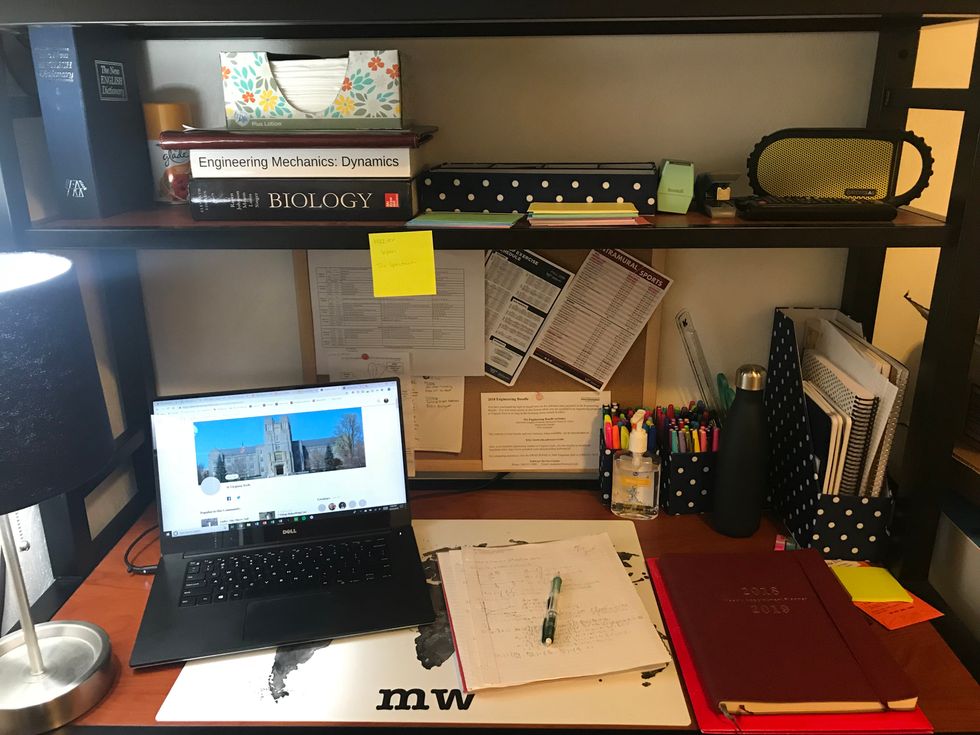Sometimes the semester doesn't start off the way you plan, especially for freshman or new transfer students. You're away from home, learning how to balance a social life with academics, and sometimes the academics are harder than anticipated.
But even with all of those things, it doesn't mean that you can't turn your academics around! Many students don't do well on their first exams but end up making good grades in the class.
So, here are some tips that'll turn those mediocre grades into ones that your parents will be proud of!
Show up to EVERY class
This seems quite obvious, but most people don't follow it.
How are you going to learn the material if you don't show up at all?
Just hearing the information in the background is better than not at all.
This also brings up another point: if you're not a morning person, DON'T schedule early morning classes.
You'll press snooze, miss class, and get a C only because you didn't show up. Don't expect yourself to magically become a morning person because of an 8 a.m. on Monday's, Wednesday's, and Friday's.
Take notes - but by hand
Buy yourself some spiral notebooks and get writing!
A study by Pam A. Mueller of Princeton University and Daniel M. Oppenheimer of the University of California, Los Angeles used college kids as psychological guinea pigs and tested their ability to recall information when taking lecture notes by hand versus by typing them on the computer.
In the study, it was found that the students typing recorded more words but ultimately retained less information and did worse when answering fact-based questions. This is due to students simply typing notes verbatim from the lecture and not summarizing them in their own words, which makes it harder for the brain to store in long-term memory.
Laptops also provide distractions, with notifications popping up and the lure of social media.
Even taking notes by hand on a tablet can provide distractions, so ditch the tech and grab a pen.
Turn off the tech
In conjunction with our second point, turning off technology will help with retention, since most people are always 'waiting' for their next notification, text or email.
This alone can deter your comprehension of the topic.
If you really can't turn off your phone, you can place your phone (if you have an iPhone) on 'Do not disturb' mode, which you can program to only show notifications if someone calls you repeatedly in a five-minute period.
Rewrite your notes
If you're anything like me, your initial notes are a complete mess, which completely stresses me out. Therefore, I take the time to rewrite them on my tablet in a form that is organized and makes sense.
This also reiterates the information in your brain, which makes it easier to recall during homework or tests.
While doing this, instead of copying the examples, redraw the diagram and write down the question, then put your notes away and try to work out the problem as you did in class.
If you can't recall any of the information, highlight or star the problem so you can practice it before you take the exam.
Start homework the day it's assigned
After rewriting your notes, start the homework assignment.
This will reiterate the information for a third time, which increases the likelihood of the brain putting it in long-term storage.
Make sure to highlight or star the problems you had trouble with so you can revisit them before the test.
Start studying at least a week before an exam
A week may seem a little excessive, but keep in mind that you have 4 other classes that you need to account for!
Divide up the sections between the seven days and start studying the questions in the section you had trouble with first.
If you need more help, look up similar problems in the textbook and try those. You can even ask you professor for recommendations on problems to study.
Keep the studying to only one to three hours a day so you can focus on your other classes.
- 8 Study Tips For Science Majors ›
- 33 Tips For Getting a 4.0 GPA Your First Semester Of College ›
- 13 Tips To Help Motivate You In College ›



















